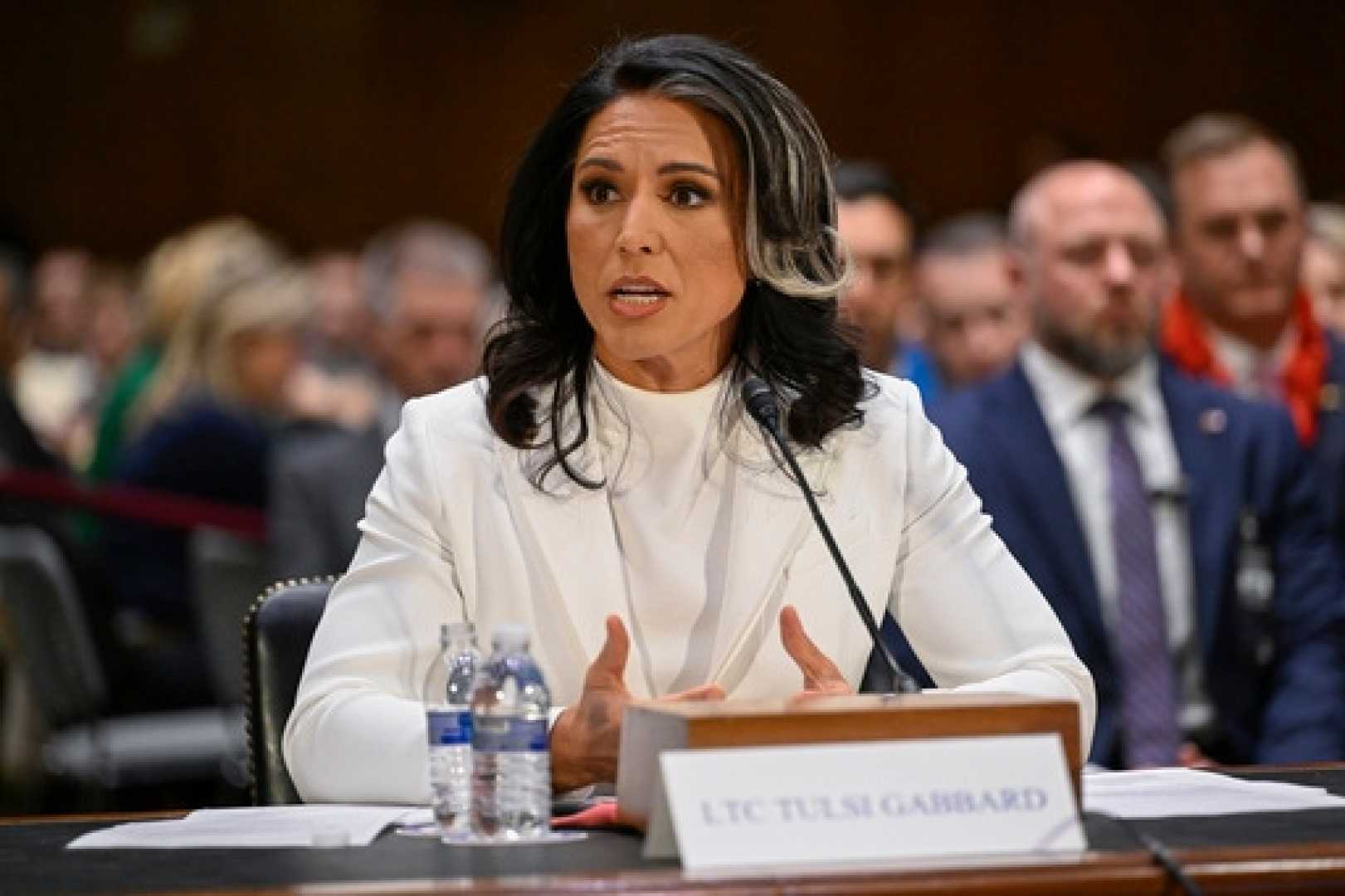Politics
Senate Panel Backs Tulsi Gabbard for Intelligence Director Role

WASHINGTON, D.C. — The Senate Intelligence Committee on Tuesday narrowly voted 9-8 to advance Tulsi Gabbard‘s nomination as director of national intelligence, setting the stage for a full Senate vote on her confirmation. The decision came after a contentious hearing last week where Gabbard faced scrutiny over her past positions on surveillance and national security.
Gabbard, a former Democratic congresswoman from Hawaii and 2020 presidential candidate, now aligned with former President Donald Trump, addressed concerns about her stance on Edward Snowden and Section 702 of the Foreign Intelligence Surveillance Act. She reversed her previous call for Snowden’s pardon, stating she would not seek clemency for the former NSA contractor accused of espionage. She also softened her criticism of government surveillance programs, calling them a necessary tool for national security.
Two Republican senators, Susan Collins of Maine and Todd Young of Indiana, announced their support for Gabbard ahead of the committee vote. Collins cited Gabbard’s reassurances on Snowden, while Young praised her commitments to advancing national security.
Snowden, who leaked classified information in 2013 exposing U.S. global surveillance operations, remains in Russia after fleeing espionage charges. Gabbard’s nomination has reignited debates over surveillance, foreign policy, and her controversial past positions, including her skepticism of U.S. intelligence assessments on Syria‘s chemical weapons attacks.
At her confirmation hearing, Gabbard defended her record, rejecting claims that she sided with U.S. adversaries. “I am not Putin’s puppet or Assad’s puppet,” she said. “What truly unsettles my political opponents is I refuse to be their puppet.”
If confirmed, Gabbard would oversee 18 intelligence agencies with a combined budget of approximately $100 billion. The position, created after the Sept. 11, 2001, terrorist attacks, serves as the principal intelligence adviser to the president.
The full Senate vote on Gabbard’s nomination could be closely contested. She can afford to lose up to three Republican votes if no Democrats support her. The committee’s approval marks a significant step, but her confirmation remains uncertain amid lingering skepticism from some lawmakers.












